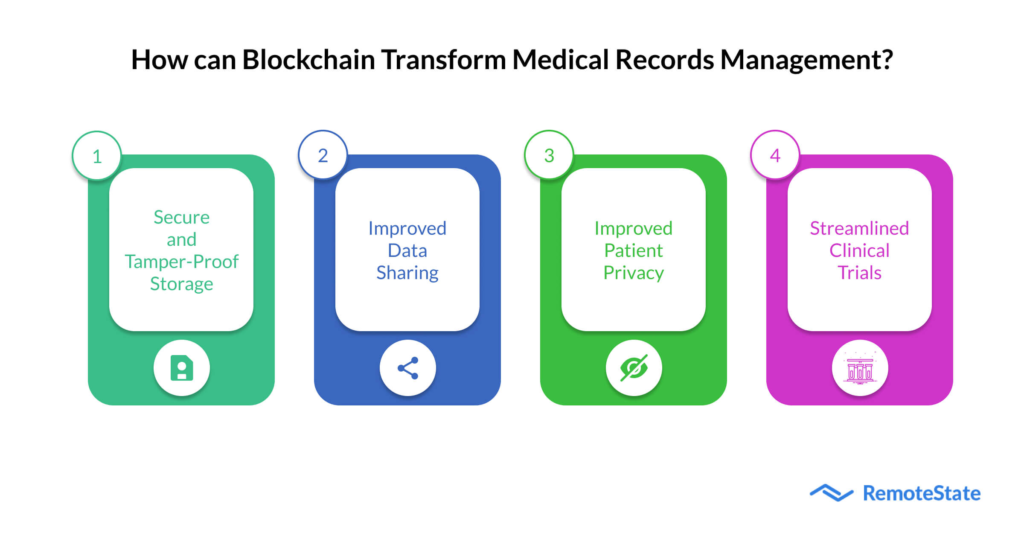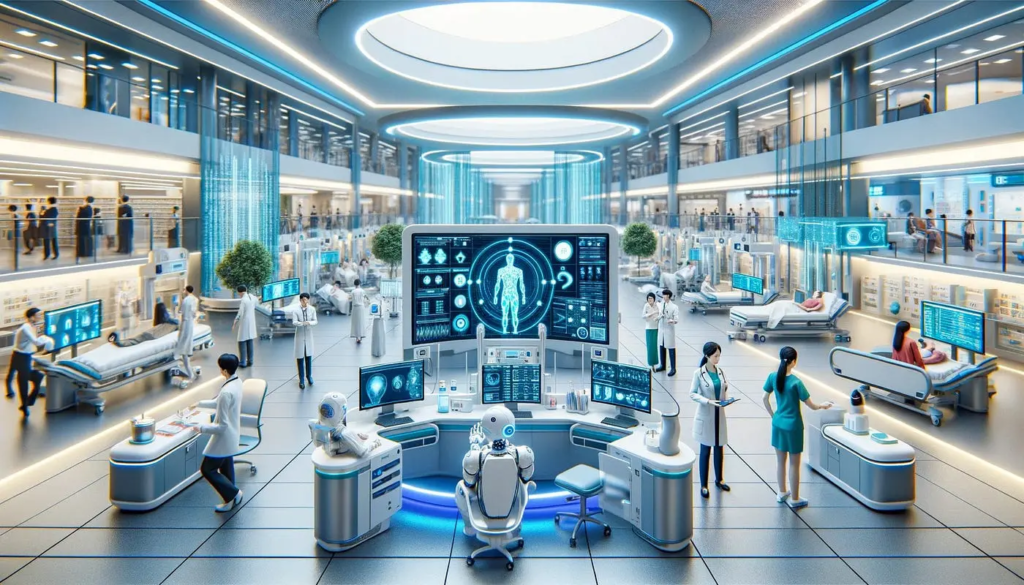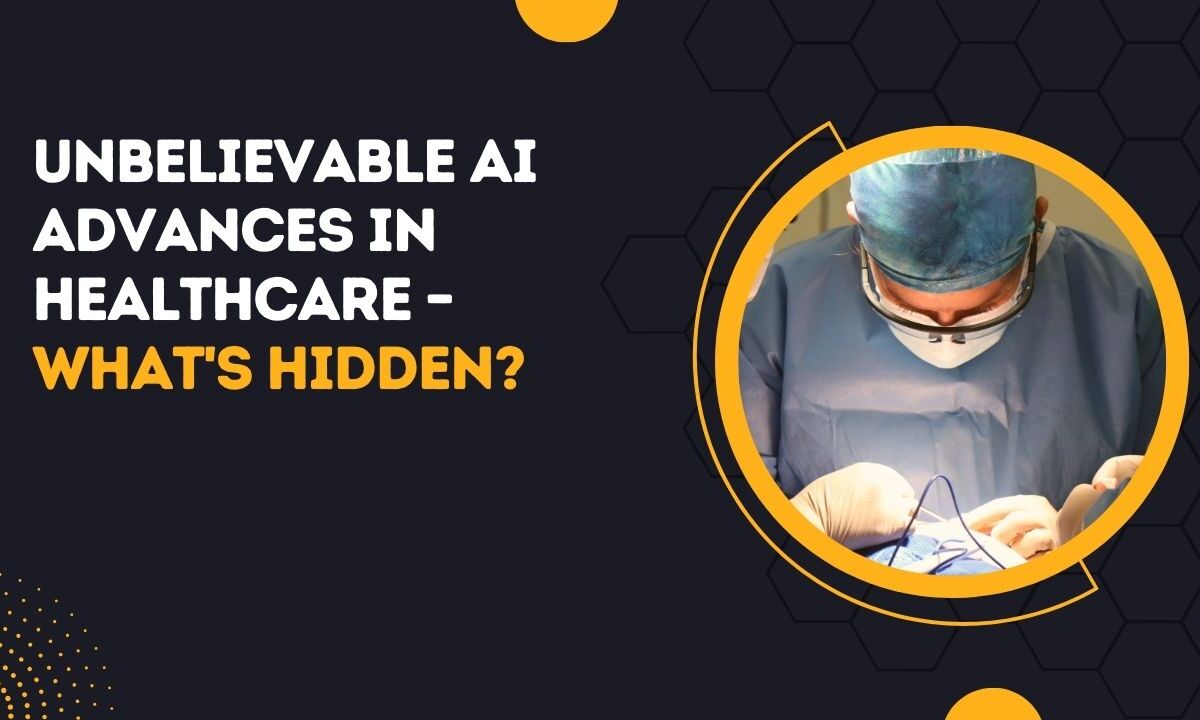Unbelievable AI Advances in Healthcare – What’s Hidden?
AI in healthcare is changing medicine in ways we never imagined—but what’s really going on behind the scenes? From diagnosing diseases faster than doctors to predicting health risks before symptoms even show, AI is revolutionizing patient care.
Recent breakthrough research shows that AI can detect cancer with 94% accuracy—sometimes catching what human eyes miss. But beyond the headlines, some game-changing innovations remain hidden.
What breakthroughs are happening right now that could transform your health?
In this article, we’ll uncover the most unbelievable AI advances in healthcare and what they mean for you.
Let’s dive into the future of medicine!
AI in Medical Diagnosis – Detecting Diseases Earlier Than Ever
Early detection saves lives.
AI-powered imaging scans detect cancer, heart disease, and neurological disorders before symptoms appear.

Image Source: Abtosoftware.com
Imagine an algorithm analyzing thousands of mammograms in seconds, spotting anomalies that human eyes might miss.
AI chatbots are also revolutionizing initial patient assessments, offering rapid symptom analysis and guiding individuals toward the right medical care.
AI in Personalized Medicine – Tailored Treatments for Every Patient
No two patients are the same.
AI-driven genetic analysis creates customized drug prescriptions, ensuring maximum effectiveness with minimal side effects.
Machine learning models analyze patient histories to predict medication responses, reducing trial-and-error in treatments.
Real-time monitoring further refines treatment plans, making medicine as precise as a tailor-made suit.
AI in Surgery – The Future of Robotic Precision
AI-assisted robotic surgery is transforming the operating room.
These robots execute intricate procedures with unmatched precision, reducing complications. Tremor-reduction technology ensures steady hands, even in delicate surgeries.
AI also provides real-time analysis, assisting surgeons in making split-second decisions.
AI in Drug Discovery – Faster, Cheaper, and More Effective Medicines
Developing a new drug typically takes years and billions of dollars.
AI is changing that.
Algorithms identify promising drug compounds at record speed.
Machine learning predicts drug interactions and side effects, making drug development safer and more cost-effective.
AI in Predictive Healthcare – Preventing Diseases Before They Start
Wouldn’t it be amazing to predict an illness before it even begins?
Wearable AI devices track vital signs, alerting users to potential health issues.
AI models identify at-risk patients before symptoms appear, enabling early interventions. Advanced AI even predicts pandemics, providing crucial early warnings.
AI in Mental Health – Revolutionizing Psychological Care
24/7 AI-Powered Therapy
Mental health support is evolving. AI chatbots offer 24/7 therapy, giving immediate help to those in distress. No waiting, no judgment—just instant support when you need it most.
Emotion Recognition for Early Detection
AI can analyze facial expressions, voice tones, and even text patterns to detect early signs of anxiety and depression. Spotting mental health issues early means faster intervention and better outcomes.
AI-Driven Cognitive Behavioral Therapy (CBT)
Personalized AI-guided CBT apps help users work through stress, anxiety, and negative thought patterns. These digital coaches make therapy more accessible and affordable.
Virtual Reality (VR) Therapy for Anxiety
AI-powered VR simulations help patients confront fears in a safe environment. From social anxiety to PTSD, AI based immersive therapy is making big breakthroughs in mental health care.
AI in Suicide Prevention
Advanced algorithms analyze social media activity, search behavior, and speech patterns to identify distress signals. AI can alert professionals or loved ones before a crisis escalates.
Personalized Mental Health Insights
AI tracks mood patterns and behavioral changes over time, offering tailored recommendations. Think of it as a mental wellness coach that truly understands you.
AI in Emergency Care – Faster, More Efficient Response
Seconds matter in emergencies. AI-driven triage systems prioritize ER patients, ensuring the most critical receive immediate attention.
AI enhances ambulance dispatching, reducing response times.
Predictive AI identifies ICU admissions before symptoms worsen, saving countless lives.
The Debate: Can AI Replace Human Doctors?

Image Source: Digeemed.com
AI’s Strengths – Speed & Precision
AI is a powerhouse when it comes to pattern recognition.
It scans medical images, detects anomalies, and even assists in surgeries—all at lightning speed.
No fatigue, no second-guessing, just pure precision.
Lack of Human Intuition & Empathy
AI can crunch numbers, but it can’t hold your hand in tough times.
It doesn’t pick up on subtle symptoms or emotional cues. A reassuring nod, a comforting word—that’s still a doctor’s domain.
Best Used as an Assistant, Not a Replacement
Think of AI as the ultimate sidekick, not the hero. It automates tasks, streamlines workflows, and boosts accuracy.
But when it comes to big decisions and human connection, doctors still call the shots.
The Future: AI + Human Collaboration
The best of both worlds?
That’s where healthcare is headed.
AI will continue sharpening its skills, but doctors will remain the heart of medicine—guiding, deciding, and ensuring care goes beyond just data.
Future Trends in AI Healthcare – What’s Coming Next?
Video Source: The Medical Futurist
Personalized AI-Driven Treatments
Imagine treatments crafted just for you—no one-size-fits-all approach.
AI will analyze your genetics, lifestyle, and medical history to create therapies that work better and cause fewer side effects. Precision medicine is about to get even sharper.
AI in Drug Discovery & Development
New medicines in record time? That’s AI’s promise. It can analyze vast data, predict drug interactions, and speed up research, cutting years off the development process.
The result?
Faster cures, lower costs, and better treatments for deadly diseases.
Wearable AI Health Monitors
Your smartwatch might soon be your personal doctor. AI-powered wearables will track vital signs, detect abnormalities, and alert you before symptoms even appear.
Preventive healthcare is shifting from guesswork to data-driven precision.
AI & IoMT for Remote Patient Care
Hospitals are no longer the only place for top-tier healthcare.
AI and the Internet of Medical Things (IoMT) will enable real-time patient monitoring from anywhere. Whether at home or across the globe, you’ll always be connected to medical care.
AI-Powered Nanotechnology for Precision Medicine
Nanosensors for Early Disease Detection
AI-driven nanosensors can sniff out diseases at the molecular level, long before symptoms show up.
Detecting cancer, infections, or neurological disorders early could mean the difference between a minor treatment and a life-threatening condition.
Targeted Drug Delivery
No more blanket treatments with painful side effects. AI-powered nanotech will deliver medicine directly to affected cells, ensuring maximum impact with minimal harm.
Precision drug delivery is about to change how we fight diseases.
Potential for Treating Complex Diseases
From cancer to Alzheimer’s, AI-driven nanomedicine is on the frontier of breakthrough treatments.
By tailoring therapies at a microscopic level, we could finally find solutions to some of the world’s most stubborn diseases.
The Future of AI & Nanomedicine
We’re on the verge of a medical revolution. AI-driven nanotechnology will reshape healthcare, offering hyper-personalized treatments for chronic and genetic disorders.
The future of medicine isn’t just digital—it’s microscopic.
AI and Blockchain Integration for Secure Data Sharing
Immutable & Tamper-Proof Records
Imagine medical records that no one can alter, hack, or manipulate. Blockchain ensures data stays secure and untouched, eliminating fraud and unauthorized changes.
Your health history remains yours—safe and reliable.

Image Source: Remote State
AI-Enhanced Data Analysis
AI doesn’t just store data; it makes sense of it.
By analyzing encrypted records on blockchain, AI can extract life-saving insights while keeping everything private and compliant with strict healthcare regulations.
Smart and secure—just how medical data should be.
Secure Cross-Border Medical Collaboration
What if doctors across the world could securely access medical data to advance treatments?
Blockchain enables global data sharing, and AI makes sense of it, helping researchers track health trends and fight diseases on a global scale.
Empowering Patients with Data Control
Your health data, your rules. AI and blockchain together give patients full control over who accesses their records.
Share medical history securely with doctors whenever needed—no middlemen, no breaches, just seamless healthcare.
AI-Driven Autonomous Medical Robots
AI-Powered Surgical Assistants
Surgical robots like Da Vinci are taking precision to the next level. AI enhances their accuracy, reducing surgical risks and improving recovery times.
With robots assisting, even the most complex procedures become safer and more efficient.
Hospital Automation & Efficiency
Hospitals of the future won’t just be filled with doctors and nurses—AI-driven robots will handle routine tasks like dispensing medication, monitoring patients, and even disinfecting spaces.

Image Source: MedTechWorld
This frees up medical staff for what truly matters—patient care.
Rehabilitation & Personalized Therapy
AI-powered rehab robots will transform recovery. Whether it’s stroke patients regaining movement or athletes recovering from injuries, personalized therapy programs will adapt in real time, making rehabilitation faster and more effective.
The Future: Smarter, More Capable Robots
AI-driven medical robots are only getting started. Soon, they’ll assist in diagnostics, offer real-time surgical guidance, and even predict potential complications before they arise.
The future of healthcare is hands-on—literally.
Expansion of AI-Driven Preventive Healthcare
Wearable AI for Early Disease Detection
Your smartwatch might soon be your health guardian.
AI-powered wearables will track vital signs, detect warning signals, and flag potential illnesses before symptoms even appear.
Prevention just got a tech upgrade.
Predictive Health Analytics
AI will take the guesswork out of staying healthy. By analyzing genetics, environment, and lifestyle, it will predict potential health risks, helping people make proactive changes before problems develop.
AI-Powered Virtual Health Assistants
Imagine a 24/7 health coach in your pocket.
AI-driven chatbots will provide personalized advice, track wellness goals, and guide lifestyle changes.
Whether it’s diet, fitness, or medication reminders, they’ve got you covered.
Proactive, Not Reactive Healthcare
Medicine is shifting from crisis management to prevention.
AI will help people take charge of their health early, reducing hospital visits and ensuring a longer, healthier life.
The future isn’t about treating sickness—it’s about staying well.
AI in Elderly & Home Healthcare – Supporting Independent Living
Image Source: AI Wonder
Smart Home Monitoring – A Watchful Eye, Without Intrusion
AI-powered home sensors keep a gentle watch, ensuring seniors are safe without invading their privacy.
From detecting unusual activity to adjusting room temperatures, smart systems create a comfortable and secure living space.
Virtual Nurses – Friendly Reminders, Anytime
No more missed medications or forgotten doctor’s appointments! AI-driven virtual nurses provide timely reminders, track vital signs, and even offer health tips.
It’s like having a personal caregiver—without the white coat.
Fall Detection & Emergency Response – Help, Right When It’s Needed
AI doesn’t just detect falls—it responds instantly.
Smart sensors and wearable devices can alert caregivers or emergency services in seconds, ensuring that help is on the way before a minor mishap turns serious.
Independent Living, Reimagined
Aging at home should be empowering, not stressful. With AI handling safety, health tracking, and emergency support, seniors can enjoy independence while loved ones gain peace of mind.
Aging gracefully just got a high-tech upgrade.
AI’s Impact on Different Healthcare Areas
| AI Application | Benefits | Example Technologies |
|---|---|---|
| Medical Diagnosis | Early disease detection | AI-powered imaging, predictive analytics |
| Surgery | Increased precision, fewer risks | Robotic surgery, tremor-reduction tech |
| Drug Discovery | Faster drug development | AI-generated drug compounds |
| Mental Health | Accessible therapy | AI chatbots, CBT applications |
| Predictive Healthcare | Prevention before symptoms arise | Wearable AI, predictive analytics |
| Patient Monitoring | Continuous health tracking | IoMT devices, remote monitoring AI |
| Personalized Medicine | Tailored treatments | AI-driven genomics, adaptive therapies |
| Emergency Care | Faster response times | AI triage bots, real-time monitoring |
| Administrative Tasks | Reduced paperwork, improved efficiency | AI-powered scheduling, automation |
| Radiology | Enhanced image analysis | AI-assisted MRI and CT scans |
| Elderly Care | Safe, independent living | AI-powered fall detection, virtual nurses |
FAQs
- How does AI improve healthcare efficiency?
AI automates administrative tasks, reduces errors, and enhances diagnostics, making healthcare faster and more accurate. - Can AI replace human doctors?
AI assists but doesn’t replace doctors. Human expertise remains vital in critical decision-making and patient interactions. - Is AI in healthcare safe?
Yes, but ethical concerns exist, such as data privacy and algorithm bias, which need careful management. - How does AI detect diseases earlier?
AI analyzes vast medical data, spotting patterns that indicate early-stage diseases. - Will AI make healthcare more affordable?
AI reduces costs by streamlining diagnosis, drug discovery, and administrative work, making healthcare more accessible. - What role does AI play in mental health?
AI chatbots and emotion-detection tools provide timely mental health support and therapy. - What are future AI healthcare trends?
AI-powered nanotechnology, blockchain for secure data, and autonomous medical robots are emerging trends.
Related Posts
Why Ignoring These Cutting-Edge AI Trends Could Cost You Big
AI is transforming industries at lightning speed. Stay ahead or risk falling behind in a world where automation and smart technology dominate.
The Secret AI Learning Hack for Non-Techies to Stay Ahead!
No coding? No problem! Learn AI through interactive tools, no-tech courses, and hands-on apps designed for absolute beginners.
AI Chatbot Online: The Future of Digital Conversations
Chatbots are getting smarter, offering human-like conversations, instant support, and personalized responses—reshaping customer service and business interactions.
Shocking Quantum AI Breakthroughs! What’s Coming Next?
Quantum AI is set to revolutionize problem-solving, making today’s AI look outdated. From drug discovery to cybersecurity, the future is mind-blowing!
Conclusion
The AI healthcare revolution is unfolding now, transforming everything from early disease detection to robotic surgeries. AI-driven diagnostics catch illnesses before symptoms appear, while personalized medicine tailors treatments to individual needs.
Faster drug discovery makes life-saving medicines more accessible, and AI chatbots are breaking mental health barriers with 24/7 support.
Emergency care is becoming more efficient with AI-powered patient prioritization, and wearable health monitors detect risks before they escalate. In elderly care, smart home monitoring and virtual nurses ensure safety and independence. AI and blockchain also safeguard medical records, making data secure yet accessible when needed.
Despite these advancements, AI won’t replace doctors—it lacks human intuition and empathy.
The future lies in AI-human collaboration, where technology enhances precision, and doctors provide the compassion machines can’t. Responsible AI adoption will shape a healthcare system that’s smarter, safer, and more accessible.

